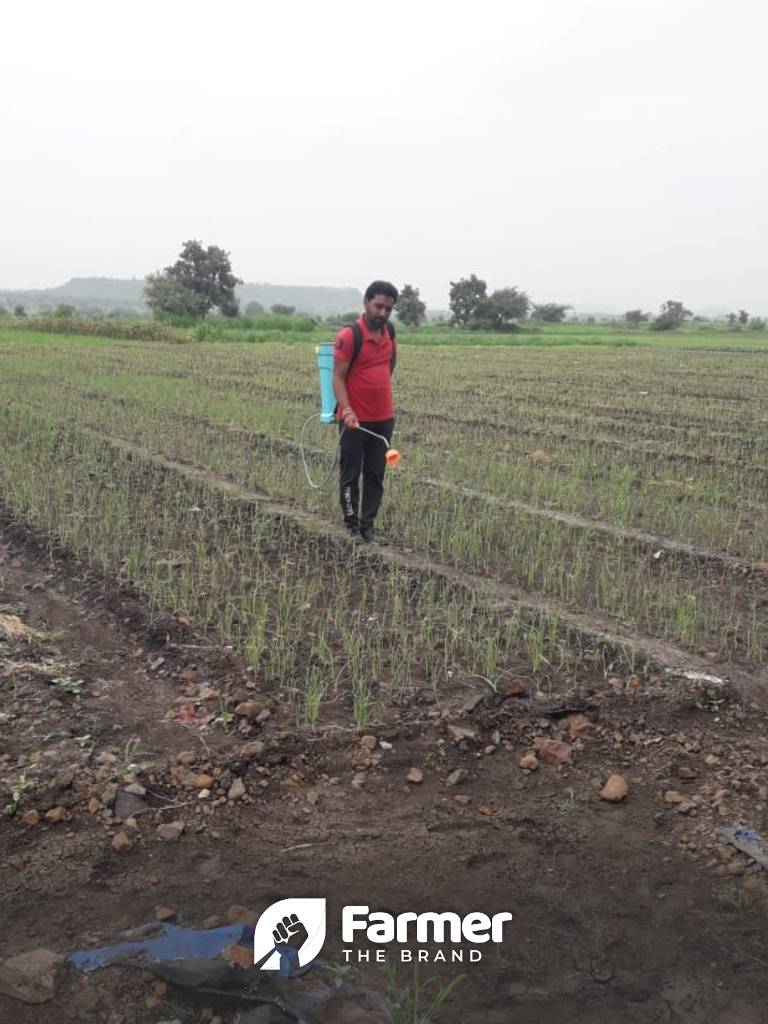
Krishi Jagran spoke with Bhagwat Sharma, a farmer from Madhya Pradesh, about vegetable cultivation for its Farmer the Brand (FTB) section.
Bhagwat Sharma is a farmer based in Madhya Pradesh. He cultivates onion, soybean, and opium. Sharma explains that he chose soybean cultivation because it is a Kharif crop which many farmers from Marwa, Rajasthan prefer.
On the other hand, onion is a cash crop which fetches good market prices. Sharma plants soybean in the monsoon season and for onions he has a special nursery. The latter is planted in the fields as soon as it rains. If there’s no rain, he relies on irrigation methods.
Certified Seeds for Better Yields
Sharma suggests farmers that it is better to use certified seeds for soybean cultivation because the sprouting capacity of soybean is comparatively less. It is to be noted that production is directly dependent on sprouting capacity. Sharma prepares the seeds of onions himself; he says the reddest of the onions have these seeds. He then prepares the saplings which are then planted in the fields.
Opium Cultivation: Legalities & Field Practices
More interestingly, Sharma discloses how opium cultivation is done. Opium cultivation is prohibited in India under Section 8 of NDPS Act, 1985. It can be only practiced by farmers after getting a license from Central Bureau of Narcotics under Rule 8 of NDPS Rules, 1985 in the states of Rajasthan, Madhya Pradesh, and Uttar Pradesh. The farmers who obtain this license sow the crop in the last week of October and the first week of November.
The field is prepared and seed beds are made. It is then supplied with DAP and fertilizers. Opium seeds are very small and one has to be very careful with the amount of water applied. In fact, Sharma says, cultivating opium requires so much of care that it is akin to raising a child.
Sharma further talks about the difficulties faced by a farmer because of climate change. He says that it is impossible to cultivate anything without the use of pesticides and a farmer has to make at least one round of his field everyday to check if there has been a mistake. If a field is left without inspection even for two days, the crops are certain to be diseased. Moreover, the fields are to be sprayed every 8-10 days with pesticides and fungicides. Sharma mostly uses the bed method of irrigation but he also says that the drip method has been gaining popularity nowadays.
A lot of farmers benefit from the subsidies provided by the government and Sharma is one of them. But this has not solved all his problems. Most of the problems in agriculture arise because of unfavourable weather conditions. Crop diseases are no small menace as well. The event of the pandemic and the government imposed lockdown has further exacerbated these issues as farmers have not been able to sell their products on time and have not been able to fetch right prices for them.
Sharma’s message to all people is to embrace agriculture and prefer it over jobs for self-dependency. He says that farmers are the backbone of the Indian economy and must be revered and encouraged.



















Share your comments